Abstract
The relationship between the concentration of plasma arginine vasopressin (AVP), urine volume, and osmolality during and after an abdominal operation was studied in nine patients. In all patients the AVP level rose well above that necessary for maximal antidiuresis (5 fmol ml-1) and then returned to within the normal range (0.5-5.0 fmol ml-1) usually over the next 24 hours. During this period of raised AVP concentration the urine volume, which varied considerably, was closely related to osmolar excretion. With the fall of AVP to normal levels, all but one of the patients eventually exhibited positive free water clearance. However, in most patients the urine remained hypertonic for some hours and its volume continued to be determined mainly by osmolar load which was itself apparently related to glomerular filtration rate. At no time was there a significant relationship between changes in plasma AVP concentration and urinary volume.
Full text
PDF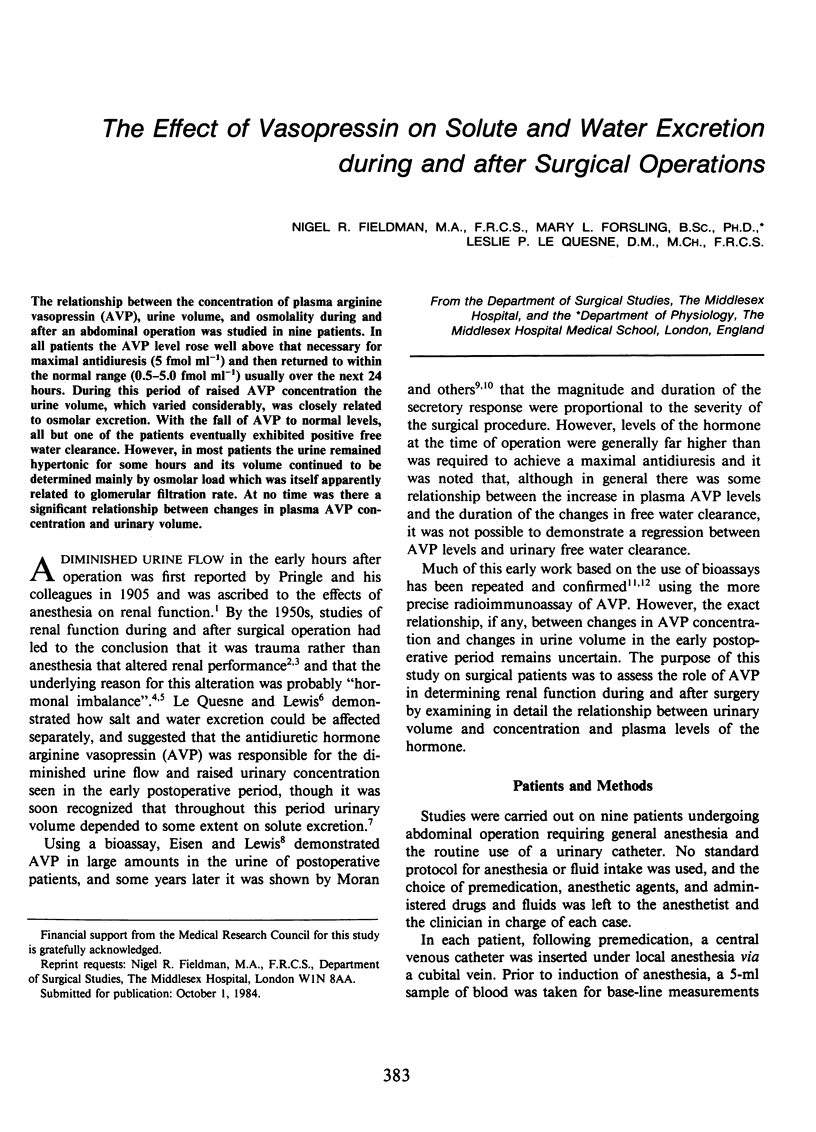
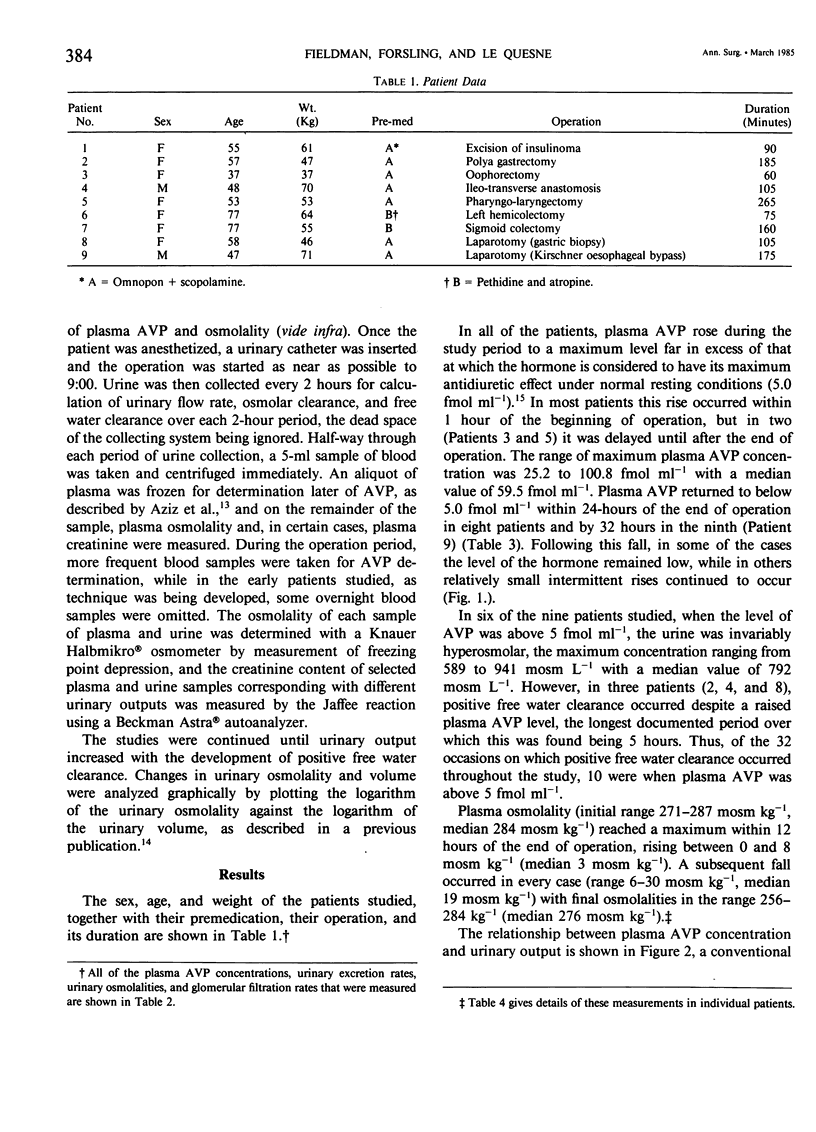
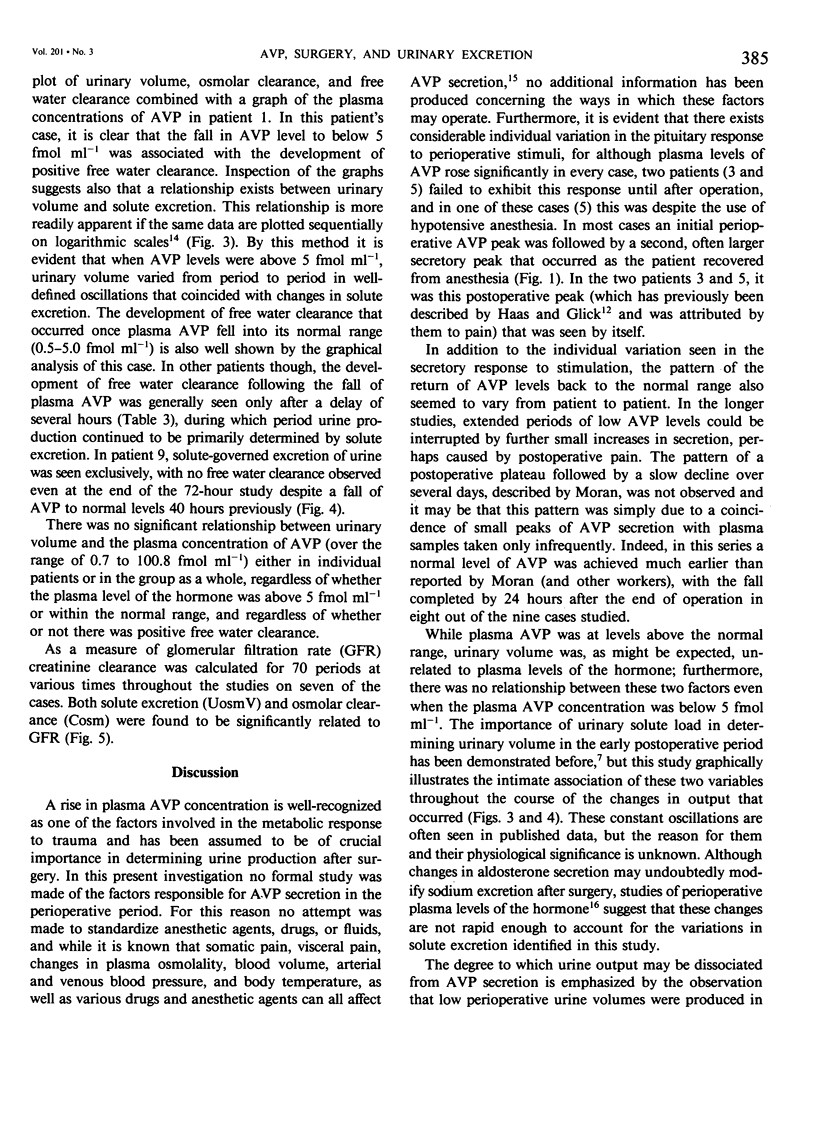
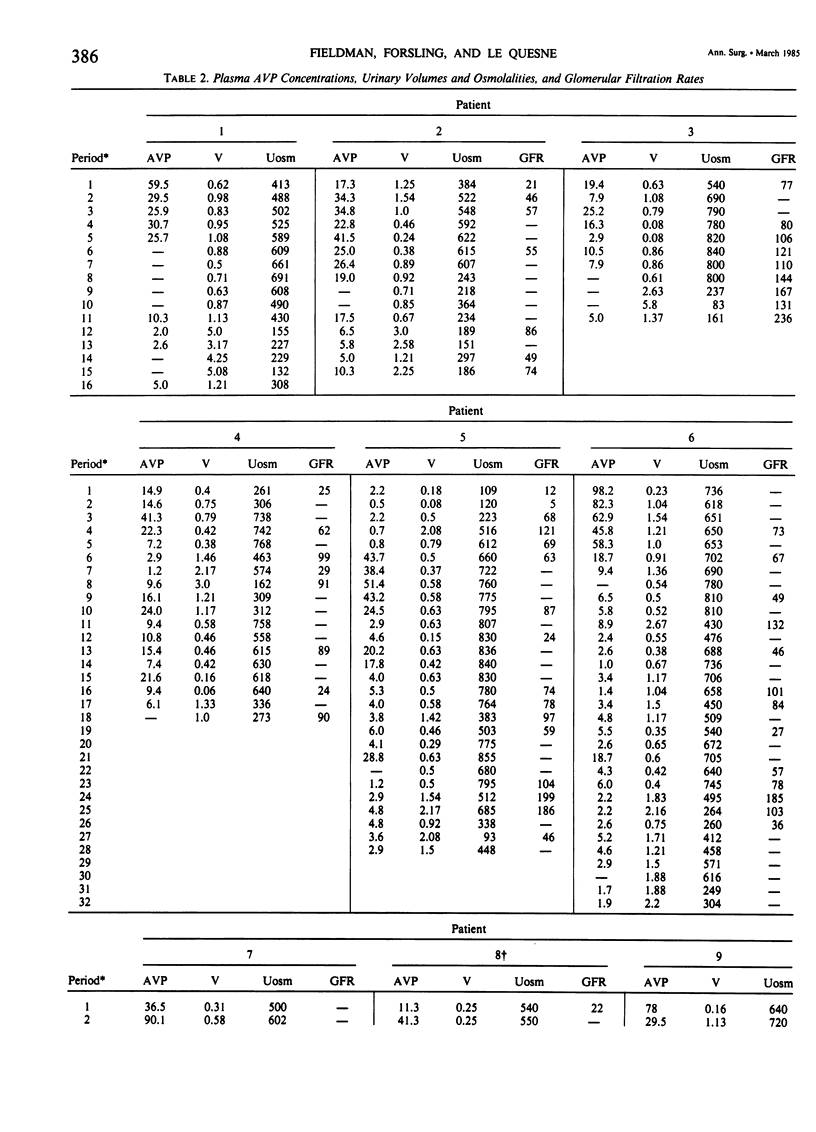
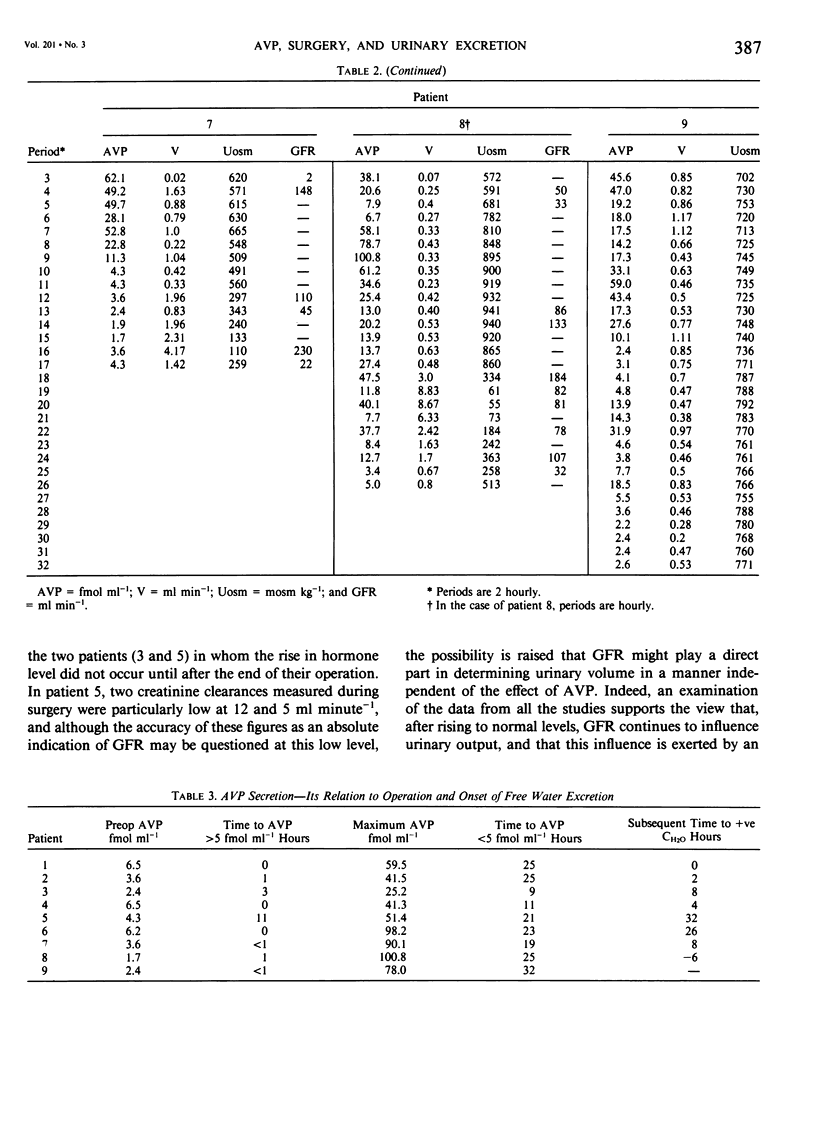
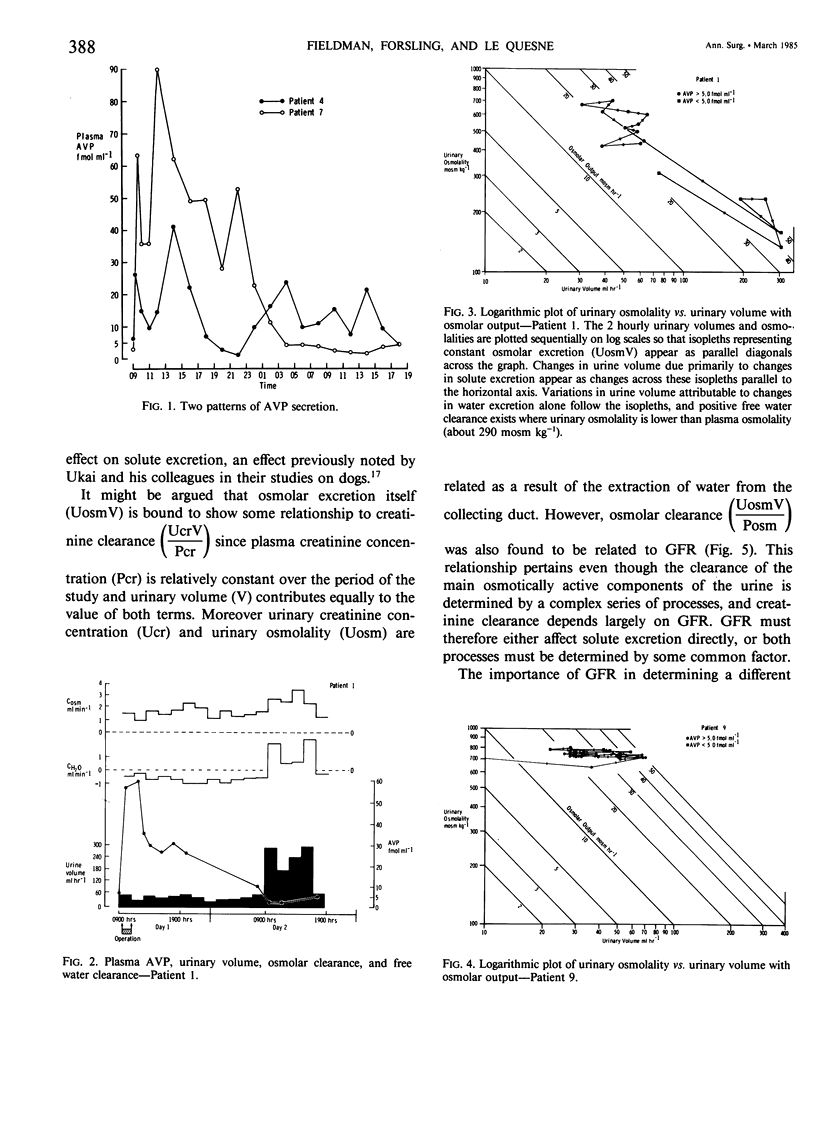
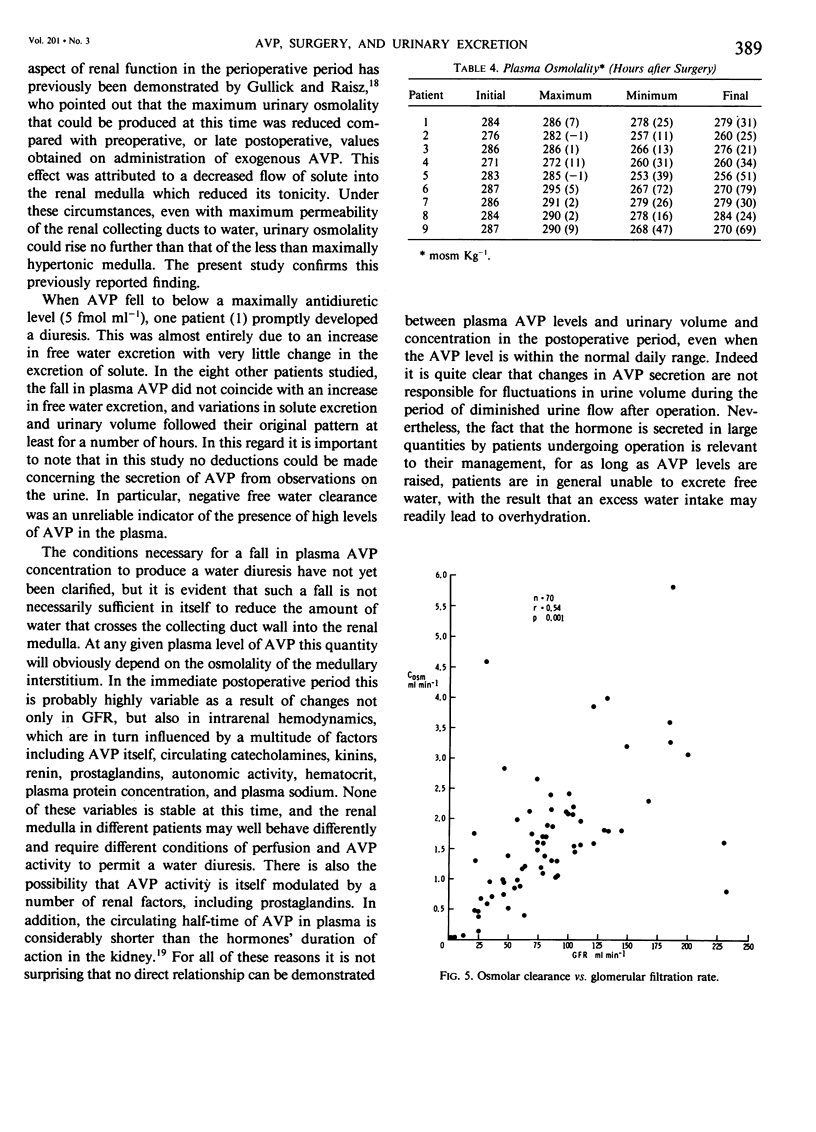
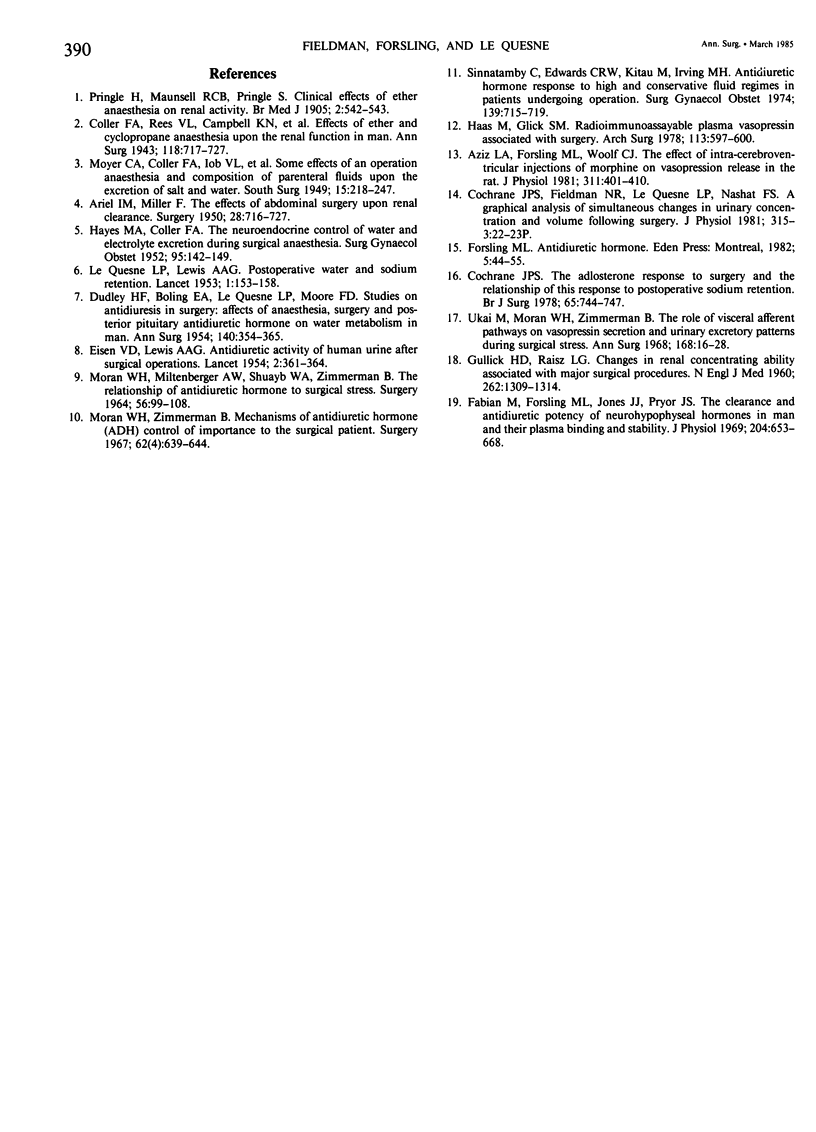
Selected References
These references are in PubMed. This may not be the complete list of references from this article.
- ARIEL I. M., MILLER F. The effects of abdominal surgery upon renal clearance. Surgery. 1950 Oct;28(4):716–728. [PubMed] [Google Scholar]
- Aziz L. A., Forsling M. L., Woolf C. J. The effect of intracerebroventricular injections of morphine on vasopressin release in the rat. J Physiol. 1981 Feb;311:401–409. doi: 10.1113/jphysiol.1981.sp013592. [DOI] [PMC free article] [PubMed] [Google Scholar]
- Cochrane J. P. The aldosterone response to surgery and the relationship of the response to postoperative sodium retention. Br J Surg. 1978 Oct;65(10):744–747. doi: 10.1002/bjs.1800651020. [DOI] [PubMed] [Google Scholar]
- Coller F. A., Rees V. L., Campbell K. N., Iob V. L., Moyer C. A. EFFECTS OF ETHER AND CYCLOPROPANE ANESTHESIA UPON THE RENAL FUNCTION IN MAN. Ann Surg. 1943 Oct;118(4):717–725. doi: 10.1097/00000658-194310000-00019. [DOI] [PMC free article] [PubMed] [Google Scholar]
- DUDLEY H. F., BOLING E. A., LEQUESNE L. P., MOORE F. D. Studies on antidiuresis in surgery: effects of anesthesia, surgery and posterior pituitary antidiuretic hormone on water metabolism in man. Ann Surg. 1954 Sep;140(3):354–367. doi: 10.1097/00000658-195409000-00012. [DOI] [PMC free article] [PubMed] [Google Scholar]
- EISEN V. D., LEWIS A. A. Antidiuretic activity of human urine after surgical operations. Lancet. 1954 Aug 21;267(6834):361–364. doi: 10.1016/s0140-6736(54)92665-3. [DOI] [PubMed] [Google Scholar]
- Fabian M., Forsling M. L., Jones J. J., Pryor J. S. The clearance and antidiuretic potency of neurohypophysial hormones in man, and their plasma binding and stability. J Physiol. 1969 Oct;204(3):653–668. doi: 10.1113/jphysiol.1969.sp008937. [DOI] [PMC free article] [PubMed] [Google Scholar]
- GULLICK H. D., RAIZS L. G. Changes in renal concentrating ability associated with major surgical procedures. N Engl J Med. 1960 Jun 30;262:1309–1314. doi: 10.1056/NEJM196006302622604. [DOI] [PubMed] [Google Scholar]
- HAYES M. A., COLLER F. A. The neuro-endocrine control of water and electrolyte excretion during surgical anesthesia. Surg Gynecol Obstet. 1952 Aug;95(2):142–149. [PubMed] [Google Scholar]
- Haas M., Glick S. M. Radioimmunoassayable plasma vasopressin associated with surgery. Arch Surg. 1978 May;113(5):597–600. doi: 10.1001/archsurg.1978.01370170059011. [DOI] [PubMed] [Google Scholar]
- LE QUESNE L. P., LEWIS A. A. G. Postoperative water and sodium retention. Lancet. 1953 Jan 24;1(6752):153–158. doi: 10.1016/s0140-6736(53)90778-8. [DOI] [PubMed] [Google Scholar]
- MORAN W. H., Jr, MILTENBERGER F. W., SHUAYB W. A., ZIMMERMANN B. THE RELATIONSHIP OF ANTIDIURETIC HORMONE SECRETION TO SURGICAL STRESS. Surgery. 1964 Jul;56:99–108. [PubMed] [Google Scholar]
- Moran W. H., Jr, Zimmermann B. Mechanisms of antidiuretic hormone (ADH) control of importance to the surgical patient. Surgery. 1967 Oct;62(4):639–644. [PubMed] [Google Scholar]
- Sinnatamby C., Edwards C. R., Kitau, Irving M. H. Antidiuretic hormone response to high and conservative fluid regimes in patients undergoing operation. Surg Gynecol Obstet. 1974 Nov;139(5):715–719. [PubMed] [Google Scholar]
- Ukai M., Moran W. H., Jr, Zimmermann B. The role of visceral afferent pathways on vasopressin secretion and urinary exeretory patterns during surgical stress. Ann Surg. 1968 Jul;168(1):16–28. doi: 10.1097/00000658-196807000-00002. [DOI] [PMC free article] [PubMed] [Google Scholar]


